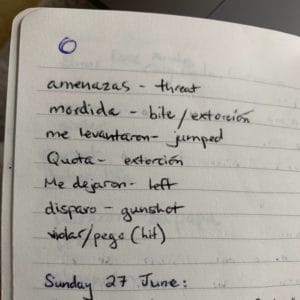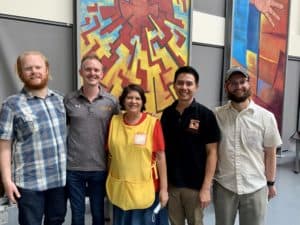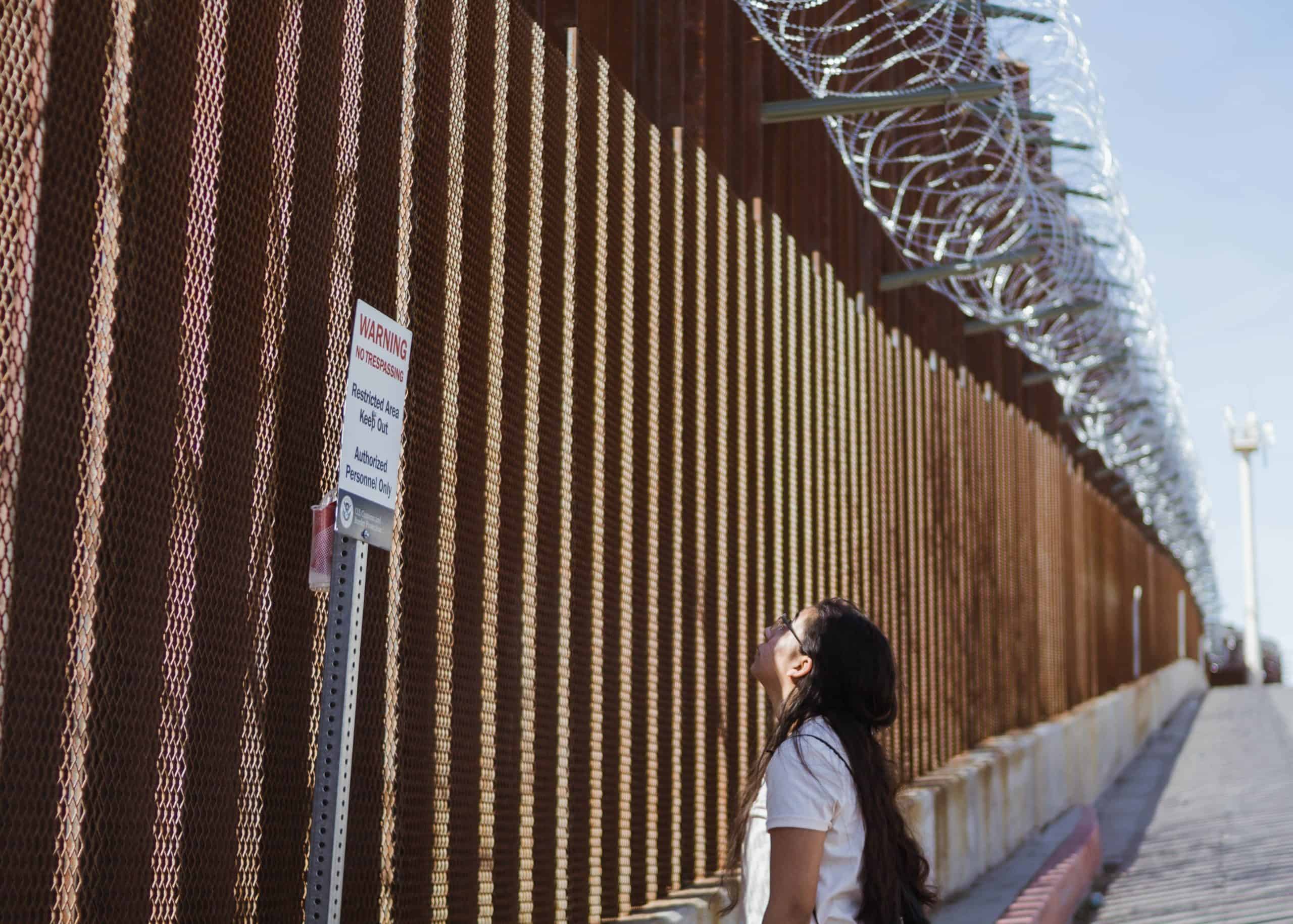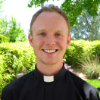This summer, I spent 7 weeks in Nogales, a town straddling the border between the U.S. and Mexico volunteering at Kino Border Initiative. On my first visit to “the other side,” I was greeted with an impressive building just a few yards away from the USA/Mexico Port of Entry. However, I quickly learned that this haven of hospitality had opened only just before the pandemic hit. The Kino Border Initiative that I had heard so much about was a humble, modest, and intimate comedor (cafeteria) across the street. It’s hard for me to imagine its former operations, as the massive spirit of KBI that I came to know would seem to blow out the roof and walls of its former abode.
I arrived at the border with some embarrassment, I have toadmit, because of my ignorance of the reality there. Immigration is one of those incredibly charged issues that ignites and divides so many that it can sometimes feel easier not to engage. However, not engaging was not much of an option for me being immersed in the thick of this new, complex, and so very human reality.
Given that I knew some Spanish already, I was assigned to help with “encuestas” or intakes. The encuesta is the heart of the work at KBI—it’s the first thing that’s done when someone walks through the front door for the first time. It’s a one-on-one encounter where you listen to someone’s story—where they’ve come from and what they’ve experienced along the way. After a few days observing others doing these encuestas, I was terrified. There was no way I spoke enough Spanish to do this, not to mention the added challenges of speaking through a mask and plexiglass partition due to the pandemic.

The author’s notebook filled with new Spanish vocabulary.
So many words I had never heard before. A whole new vocabulary that I’d never learned in Spanish 1–or Spanish 2, 3, or 4 for that matter:
Amenazas: threats
Secuestro: kidnapping
Delincuencia: crime
Extorsión: extortion
Balas: bullets
Nos dejaron: they abandoned us
Golpes: beatings
This wasn’t CSI or Law & Order, these were people’s lives right in front of me and I felt so very unprepared and ill-equipped for the task.
Filled with trepidation that first week, I became an expert in staying occupied with other tasks at KBI. Assistance was always needed in the kitchen, which prepared and served meals everyday for up to 900 people.

The author (second from left) with other KBI volunteers.
Helping in the kitchen worked well enough until the first Sunday rolled around—it was the día de descanso (day of rest) for most of the KBI team, except for us Jesuit volunteers there for the summer. One of my Jesuit brothers took a look outside the front door at the seemingly endless fila (line) of people outside waiting for an encuesta (intake), and then looked me dead in the eyes and said, “Myles, we need you on encuestas.”
There was no way out of it now. I took a deep breath, gulped down a cup of coffee, and said a prayer—“Lord, there is no way I can do this on my own, ayúdame (help me)”
One after the other walked in and sat down in front of me. I’d begin with an apology for my Spanish, at which point some smiled, others looked confused, and one man said, “No te preocupes. Dios te va a ayudar.” (Don’t worry, God will help you.)
And boy, wasn’t that the truth.
My fear lifted and my heart took over. I felt the Holy Spirit palpably present in my midst. Beyond any unfamiliar words, I could sentir (feel) the pain of loss, abandonment, and rejection in the voices, eyes, and tears in front of me—the desperation of fleeing violence, threats, and insecurity. But I also felt this uncanny hope and faith that imagines and runs toward something much more—more safe, humane, and free.
Más vida, one man said. “I’m not looking for a better life, but more life.”
Leaving everything behind in search for this more life. Going days without food or water in the desert heat. Waiting months, even years in a new and strange place. All the while, trusting with all that’s in you, that more life is possible.
The stories I was invited into during the encuestas (intakes) were soaked full of this uncanny trust and faith in something more. What I didn’t expect, however, was to find echoes of my own story stirred up— experiences of my own doubts and feelings of powerlessness, abandonment, and rejection at times.
Each person in front of me was teaching me something very important—just how incredibly strong the human spirit is to endure, persevere, and hope in something unseen. In small ways, I came to recognize that same strength in myself, like when I jumped into something new and unknown—the encuestas (intakes) even though I felt so incapable and inadequate. Feeling the presence of the Holy Spirit nudged me on and reminded me that I can do difficult things. And I’m not doing these things alone.
We all have this astounding strength and spirit within us moving towards something more, even in the most messy of circumstances.
As Pierre Teilhard de Chardin S.J., French Jesuit Priest and theologian writes, life has a direction toward more life—even when every certainty is shaken. 1 It’s the message of our Gospel: the Good Shepherd has come, so that we might have more life. 2
Perhaps we can pray for the grace to trust a little bit more in that direction of more life.

God of more life, open the eyes of our hearts to see just how strong we are, and to know for certain whom we belong to. We pray that the other might become our brother, and that as we learn to depend on others, we might learn to depend on you as we journey together in search of más vida. Amen.
Click here to learn more or support the efforts of Kino Border Initiative.
Photo by Annika Gordon on Unsplash


